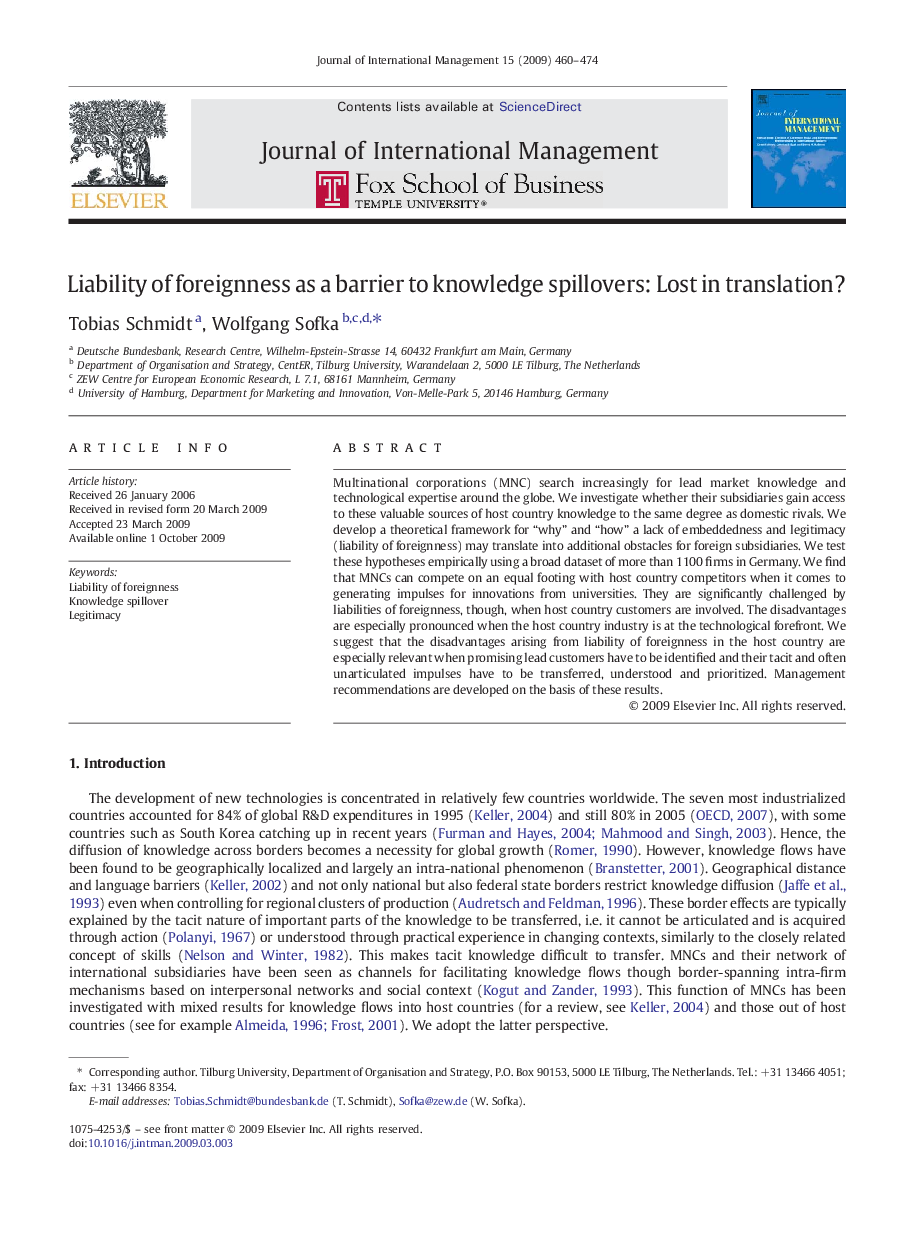| Article ID | Journal | Published Year | Pages | File Type |
|---|---|---|---|---|
| 1020342 | Journal of International Management | 2009 | 15 Pages |
Multinational corporations (MNC) search increasingly for lead market knowledge and technological expertise around the globe. We investigate whether their subsidiaries gain access to these valuable sources of host country knowledge to the same degree as domestic rivals. We develop a theoretical framework for “why” and “how” a lack of embeddedness and legitimacy (liability of foreignness) may translate into additional obstacles for foreign subsidiaries. We test these hypotheses empirically using a broad dataset of more than 1100 firms in Germany. We find that MNCs can compete on an equal footing with host country competitors when it comes to generating impulses for innovations from universities. They are significantly challenged by liabilities of foreignness, though, when host country customers are involved. The disadvantages are especially pronounced when the host country industry is at the technological forefront. We suggest that the disadvantages arising from liability of foreignness in the host country are especially relevant when promising lead customers have to be identified and their tacit and often unarticulated impulses have to be transferred, understood and prioritized. Management recommendations are developed on the basis of these results.
